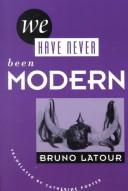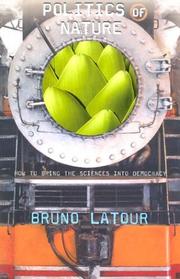| Listing 1 - 10 of 59 | << page >> |
Sort by
|

ISBN: 1840007230 Year: 2003 Publisher: London Miller
Abstract | Keywords | Export | Availability | Bookmark
 Loading...
Loading...Choose an application
- Reference Manager
- EndNote
- RefWorks (Direct export to RefWorks)
Book collecting --- 090.1 <036> --- 379.824 --- 655.534 --- 820 "19" --- 379.824 Verzamelen als hobby --- Verzamelen als hobby --- 820 "19" Engelse literatuur--20e eeuw. Periode 1900-1999 --- Engelse literatuur--20e eeuw. Periode 1900-1999 --- 090.1 <036> Bibliofilie--Gidsen. Inleidingen --- Bibliofilie--Gidsen. Inleidingen --- Stofomslag. Cover. Boekomslag --- Great Britain --- United States --- Book history --- anno 1900-1999

ISBN: 1857325435 Year: 1996 Publisher: London Miller
Abstract | Keywords | Export | Availability | Bookmark
 Loading...
Loading...Choose an application
- Reference Manager
- EndNote
- RefWorks (Direct export to RefWorks)
09 <036> --- 090.1 <036> --- 379.824 --- 379.824 Verzamelen als hobby --- Verzamelen als hobby --- 090.1 <036> Bibliofilie--Gidsen. Inleidingen --- Bibliofilie--Gidsen. Inleidingen --- 09 <036> Handschriften. Oude en merkwaardige drukken. Curiosa--Gidsen. Bijzonderheden m.b.t. het boek --- Handschriften. Oude en merkwaardige drukken. Curiosa--Gidsen. Bijzonderheden m.b.t. het boek --- Book history
Book
ISBN: 9004524711 9004297057 Year: 2022 Publisher: Liverpool : BRILL,
Abstract | Keywords | Export | Availability | Bookmark
 Loading...
Loading...Choose an application
- Reference Manager
- EndNote
- RefWorks (Direct export to RefWorks)
"'She burst across the revolutionary sky like a blazing meteor, dazzling all in her path,' Trotsky wrote. For the poet Boris Pasternak, she was Lara, the heroine of his novel Doctor Zhivago. Commissar, revolutionary fighter, espionage agent, journalist, Larisa Reisner (1895-1926) was a model for the 'new woman' of the Russian Revolution, and one of its most popular and brilliant writers, whose works were published in mass editions and read by millions. Her life is set against the world-shaking events of 1917, and draws on material recently released from the Soviet archives to tell her story through the memories of those close to her, her own voluminous writings, and her six books, published for the first time together by Brill with this biography"--
Book
ISBN: 1501168118 9781501168116 Year: 2019 Publisher: New York : Simon & Schuster,
Abstract | Keywords | Export | Availability | Bookmark
 Loading...
Loading...Choose an application
- Reference Manager
- EndNote
- RefWorks (Direct export to RefWorks)
This book provides a detailed account of the aftermath of the devastating earthquake that struck Haiti on January 12, 2010. It explores the immediate chaos and destruction, the international aid response, and the ongoing challenges faced by Haiti, the poorest country in the Western Hemisphere. Through the eyes of journalists and aid workers, the narrative highlights the resilience of the Haitian people and the complex dynamics of international aid efforts. The book also examines personal stories and struggles during the crisis, offering insights into the socio-economic issues that exacerbated the disaster's impact. It is intended for readers interested in humanitarian issues, disaster response, and the socio-political landscape of Haiti.
Earthquakes --- Haiti.
Book
ISBN: 9780674724990 0674724992 9780674984028 0674984021 Year: 2018 Publisher: Cambridge, Massachusetts : Harvard University Press,
Abstract | Keywords | Export | Availability | Bookmark
 Loading...
Loading...Choose an application
- Reference Manager
- EndNote
- RefWorks (Direct export to RefWorks)
Over the past twenty-five years, Bruno Latour developed a research protocol different from the actor-network theory with which his name is now associated - a research protocol that follows the different types of connectors that prompt a climate scientist challenged by a captain of industry to appeal to the institution of science, with its army of researchers and mountains of data, rather than to "capital-S Science" as a higher authority. Such modes of extension - or modes of existence, Latour argues here - account for the many differences between law, science, politics, and other domains of knowledge. -- from book cover.
Philosophical anthropology --- onderzoeksmethoden --- cultuurgeschiedenis --- wijsgerige antropologie --- Civilization, Modern --- cultuurfilosofie --- 39 --- filosofie --- sociologie --- 130.2 --- antropologie --- Anthropology, Philosophical --- Man (Philosophy) --- Civilization --- Life --- Ontology --- Humanism --- Persons --- Philosophy of mind --- Philosophy. --- Philosophy --- #SBIB:316.23H1 --- #SBIB:39A3 --- Kennissociologie --- Antropologie: geschiedenis, theorie, wetenschap (incl. grondleggers van de antropologie als wetenschap) --- 316.75:001 --- 316.75:001 Wetenschapssociologie --- Wetenschapssociologie --- Anthropologie philosophique. --- Philosophical anthropology. --- philosophical anthropology.
Book
ISBN: 9780470671894 0470671890 130637331X 1118613449 1118616154 1118613503 1118613465 9781118613504 9781118616154 9781118613443 9781118613467 Year: 2014 Publisher: Chichester, England : Wiley-Blackwell,
Abstract | Keywords | Export | Availability | Bookmark
 Loading...
Loading...Choose an application
- Reference Manager
- EndNote
- RefWorks (Direct export to RefWorks)
"Multi-disciplinary relevance for students with diverse career goals"--
Theory of literary translation --- Subtitling. Supertitling --- Interpreting --- Translation science --- Sociolinguistics --- Translating and interpreting --- Study and teaching (Higher) --- Vocational guidance --- Traduction --- Interpretation and translation --- Interpreting and translating --- Language and languages --- Literature --- Translation and interpretation --- Translators --- Vocational guidance. --- Translating --- Vertaalwetenschap --- Vertaalkunde --- Translating and interpreting. --- Vertaalwetenschap. --- Vertaalkunde. --- #KVHA:Vertaalwetenschap --- Sociolinguïstiek --- Tolken --- Ondertiteling. Boventiteling --- Literaire vertaalkunde --- Traduction. --- Translating and interpreting - Study and teaching (Higher) --- Translating and interpreting - Vocational guidance

ISBN: 074501321X 0745006825 9780674948396 Year: 1993 Publisher: New York, N.Y. Harvester Wheatsheaf
Abstract | Keywords | Export | Availability | Bookmark
 Loading...
Loading...Choose an application
- Reference Manager
- EndNote
- RefWorks (Direct export to RefWorks)
Sociology of culture --- #SBIB:316.23H2 --- 316.75:001 --- Sociologie van de wetenschappen --- Wetenschapssociologie --- 316.75:001 Wetenschapssociologie --- 813 Methodologie --- 811 Filosofie
Book
ISBN: 9781509530564 1509530568 9781509530571 1509530576 Year: 2014 Publisher: Cambridge Polity
Abstract | Keywords | Export | Availability | Bookmark
 Loading...
Loading...Choose an application
- Reference Manager
- EndNote
- RefWorks (Direct export to RefWorks)
The present ecological mutation has organized the whole political landscape for the last thirty years. This could explain the deadly cocktail of exploding inequalities, massive deregulation, and conversion of the dream of globalization into a nightmare for most people. What holds these three phenomena together is the conviction, shared by some powerful people, that the ecological threat is real and that the only way for them to survive is to abandon any pretense at sharing a common future with the rest of the world. Hence their flight offshore and their massive investment in climate change denial.The Left has been slow to turn its attention to this new situation. It is still organized along an axis that goes from investment in local values to the hope of globalization and just at the time when, everywhere, people dissatisfied with the ideal of modernity are turning back to the protection of national or even ethnic borders.This is why it is urgent to shift sideways and to define politics as what leads toward the Earth and not toward the global or the national. Belonging to a territory is the phenomenon most in need of rethinking and careful redescription; learning new ways to inhabit the Earth is our biggest challenge. Bringing us down to earth is the task of politics today. (Provided by publisher)
Globalization --- Climatic changes --- Equality --- Egalitarianism --- Inequality --- Social equality --- Social inequality --- Political science --- Sociology --- Democracy --- Liberty --- Global cities --- Globalisation --- Internationalization --- International relations --- Anti-globalization movement --- Political aspects --- #SBIB:324H20 --- #SBIB:17H3 --- #SBIB:316.23H1 --- 316.32 --- 316.32 Globale samenlevingsvormen --- Globale samenlevingsvormen --- Politologie: theorieën (democratie, comparatieve studieën….) --- Politieke wijsbegeerte --- Kennissociologie --- Bruno Latour --- Philosophy --- Environmental protection. Environmental technology --- ecologie --- klimaatverandering

ISBN: 9780674013476 0674039963 9780674039964 0674013476 9780674012899 0674012895 Year: 2004 Publisher: Cambridge, Mass. Harvard University Press
Abstract | Keywords | Export | Availability | Bookmark
 Loading...
Loading...Choose an application
- Reference Manager
- EndNote
- RefWorks (Direct export to RefWorks)
A major work by one of the more innovative thinkers of our time, Politics of Nature does nothing less than establish the conceptual context for political ecology--transplanting the terms of ecology into more fertile philosophical soil than its proponents have thus far envisioned. Bruno Latour announces his project dramatically: "Political ecology has nothing whatsoever to do with nature, this jumble of Greek philosophy, French Cartesianism and American parks." Nature, he asserts, far from being an obvious domain of reality, is a way of assembling political order without due process. Thus, his book proposes an end to the old dichotomy between nature and society--and the constitution, in its place, of a collective, a community incorporating humans and nonhumans and building on the experiences of the sciences as they are actually practiced. In a critique of the distinction between fact and value, Latour suggests a redescription of the type of political philosophy implicated in such a "commonsense" division--which here reveals itself as distinctly uncommonsensical and in fact fatal to democracy and to a healthy development of the sciences. Moving beyond the modernist institutions of "mononaturalism" and "multiculturalism," Latour develops the idea of "multinaturalism," a complex collectivity determined not by outside experts claiming absolute reason but by "diplomats" who are flexible and open to experimentation.
Political ecology. --- Social ecology --- Green movement --- Green movement. --- Human ecology. --- Science --- Science and society --- Sociology of science --- Ecology --- Environment, Human --- Human beings --- Human environment --- Ecological engineering --- Human geography --- Nature --- Ecologism --- Environmental action groups --- Environmental groups --- Environmentalism --- Political ecology --- Sustainable living --- Social aspects. --- Social aspects --- Effect of environment on --- Effect of human beings on
Book
ISBN: 9780745647319 9780745647302 0745647308 Year: 2013 Publisher: Cambridge Polity
Abstract | Keywords | Export | Availability | Bookmark
 Loading...
Loading...Choose an application
- Reference Manager
- EndNote
- RefWorks (Direct export to RefWorks)
| Listing 1 - 10 of 59 | << page >> |
Sort by
|

 Search
Search Feedback
Feedback About UniCat
About UniCat  Help
Help News
News